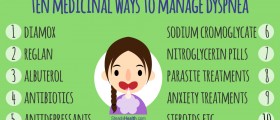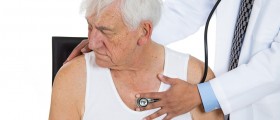
Altitude sickness or acute mountain sickness may occur while spending time at high altitudes, for example on a ski trip, while driving through a mountain pass, hiking, climbing and similar activities. It happens because the air at high altitudes is thinner and the body cannot get enough oxygen.
Causes and symptoms of altitude sickness
When a person who is not used to high altitudes travels to such area, where the air is thinner, especially if he or she goes too high too fast, the body does not have time to adjust and does not get enough oxygen.
This causes symptoms like headache, dizziness, loss of appetite, queasiness, vomiting, lethargy, fatigue, and trouble sleeping.
Symptoms tend to get worse at night and upon waking up. Some people say altitude sickness feels like a hangover. The symptoms can vary from mild to severe and they do not necessarily start immediately. Sometimes they start the day after the arrival to a high altitude.
Symptoms of severe altitude sickness include confusion, ataxia, which means not being able to walk straight, the skin, especially lips, fingertips and fingernails may become blue or gray. These are signs that the brain is not getting enough oxygen and the person needs to go down to a lower altitude immediately and to see a doctor. severe altitude sickness can be very dangerous and even fatal.
Treatment for altitude sickness
If the problems are mild, it is best to wait a few days until the body adapts to the high altitude. This may take from 12 hours to four days. It is recommended to rest and limit all activity. Healthy, balanced diet and plenty of fluids will speed up the body’s adaptation to the altitude.
Over-the-counter medication, like Tylenol, Advil and Motrin can be used to relieve headache.
Certain medications can be prescribed by a doctor to accelerate the body’s adjustment to thinner air. Those medicines are Nifedipine and dexamethasone. Oxygen and special pressure chambers also help.
A person who is suffering from altitude sickness with severe symptoms must immediately descend to a lower altitude but he or she must be accompanied by someone.
If going hiking, climbing or skiing, it is best to sleep at a lower altitude and then go up higher.
It is also recommended to spend some time at a medium high altitude before going further high. For example, if a person from low altitudes goes to Rocky Mountains, it is best to spend a night in Denver. That way the body will adjust better.
Also, it is recommended not to fly into the cities at high altitudes like La Paz or Lhasa and to use other means of transportation instead.

















Your thoughts on this
Loading...